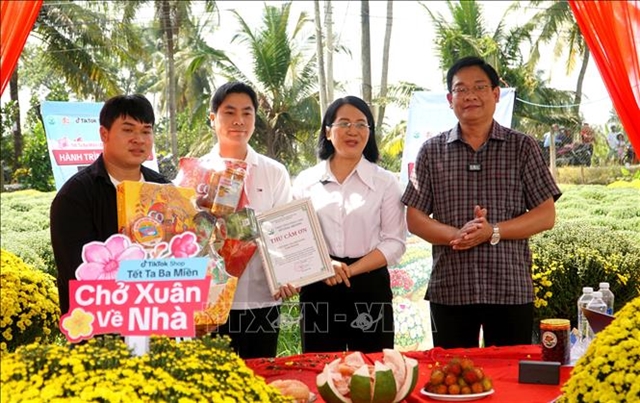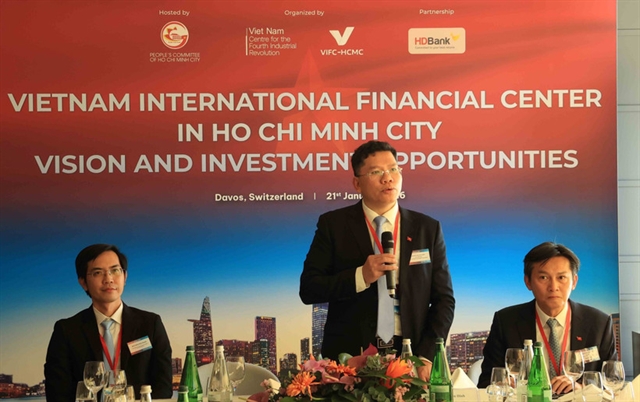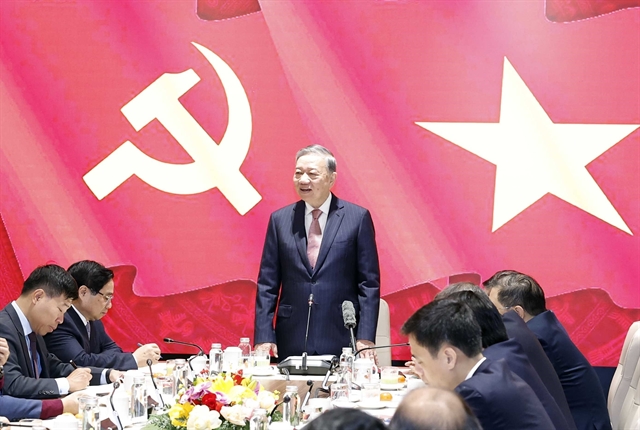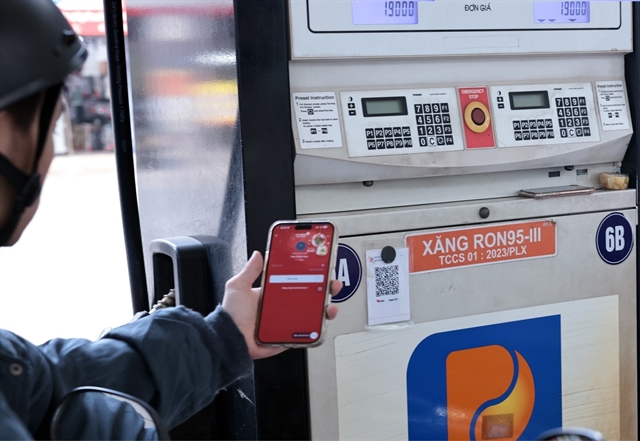 Life & Style
Life & Style

For Will Frith, born in the
 |
| At the source: Coffee plants in bloom in Lang Biang mountain, Đà Lạt City, home to most of the Arabica coffee in Việt Nam. |
by Hồng Vân
For Will Frith, born in the
His mission on that first trip was to see his grandmother. But along the way, he had the chance to experience the Vietnamese coffee culture: “sitting in the small plastic stool, watching the world go by while slowly sipping the cà phê đá (iced coffee),” he recalls. He describes the now-familiar flavour as “nutty chocolate and caramel ice cream with a bitter aftertaste”.
“Everything I heard, smelled, saw, and tasted was familiar thanks to my early exposure to the sounds of the language, the food and customs. I couldn’t quite understand why it was so familiar, but it felt something like ‘home’,” said Frith.
The passion for Vietnamese coffee, combined with his experiences working as a roaster in
“What keeps me engaged in the country [Việt
In 2013 he moved to
With strong coffee-drinking culture and more specialty cafes opening, Việt
“Most coffee-growing countries export their best products to the
Đà Lạt’s flavourful Arabica
Over the past few years, Frith has worked with specialty cafes and organisations in Việt Nam like Là Việt Coffee in Đà Lạt, a family business that produces, roasts and serves their own beans; The Workshop in HCM City, touting itself as Việt Nam’s first specialty coffee bar; Mach Coffee, a luxury roasting house in Phan Rang since the 1940s; and Filanthrope, a non profit charity that supports indigenous tribal coffee farmers.
Frith focused mostly on roaster training, barista training, branding, quality control and product development.
Trần Nhật Quang, owner of Là Việt Coffee, met Frith at the Coffee Festival in Buôn Mê Thuột City in Đắk
With a shared passion for coffee, Quang and Frith became close friends quickly.
“We talked passionately about the potential of Arabica coffee in Việt
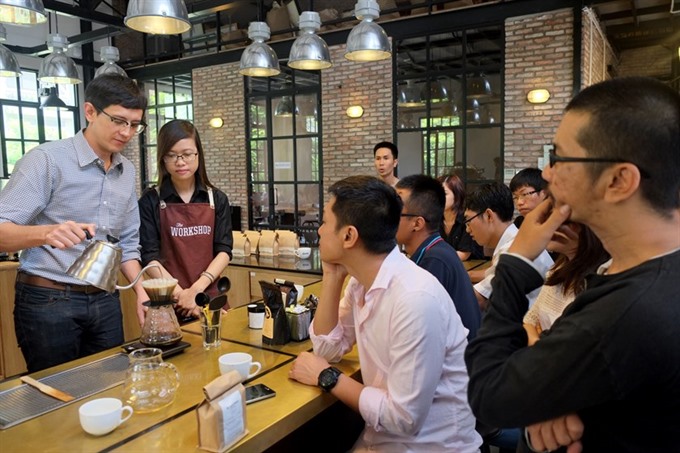 |
| Coffee master: Will Frith (front left) focused mostly on roaster and barista training, branding, quality control and product development. — Photos courtesy of Will Frith |
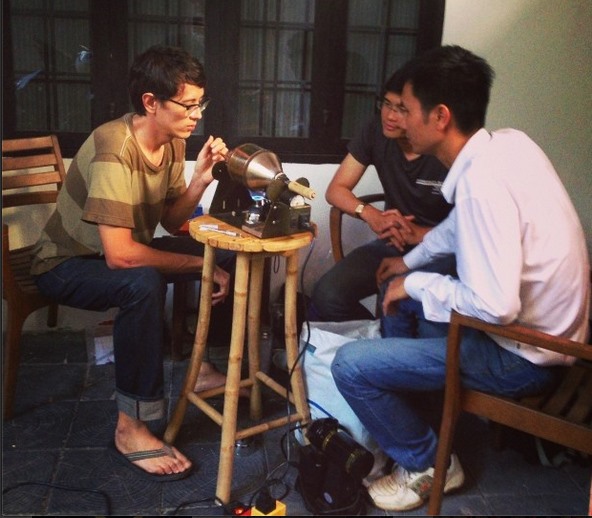 |
| Moving on up: Frith (left) has became part of a small and young community of producers, processors, green coffee buyers and roasters who are trying to "make Vietnamese coffee something legit and worthy of attention". |
Frith has become part of a small, young community of producers, processors, green coffee buyers and roasters who are trying to “make Vietnamese coffee something legit and worthy of attention”.
“I consider the work I do with small farmers as my ongoing education—we learn from each other. I am a proponent of Vietnamese specialty coffee, trying to connect as many people to Việt Nam as I can with the hope of increasing the amount of high quality Arabica that Việt Nam produces,” said Frith.
Arabica was introduced to Việt Nam in 1850s and Đà Lạt is an ideal place for growing the bean. The right growing practices and processing methods will increase the country’s Arabica quality, said Frith.
“There needs to be a lot of hard work to make it [Arabica] high quality.”
Arabica coffee has very complex flavor potential, affected by many factors. It can be “delicate, floral and tea-like, or nutty and sweet, or rich and fruity”.
The flavours can be affected by a number of factors: soil health and content, arabica type and seed selection, weather patterns, elevation, angle of the sun, surrounding forests or farms, shade, farm management, selective harvesting, clean and careful processing, storage and transport and roasting and brewing, according to Frith.
“Coffee evolved in the understories of Ethiopian forests, so it follows that some of the best coffees come from farms that resemble those forests, with healthy, fertile soil and shade trees, plenty of beneficial microbes and fungi, and animals that all work together to create a healthy ecosystem,” Frith added.
“People must be patient, with the ability to take some risks, because it’s a slow process requiring a long-term approach. They must have a good attitude, and be willing to collaborate with others—even their competitors. We all need to work together to grow the high-quality segment of the coffee industry. No single entity can do it alone,” said Frith.
Việt Nam has been the world’s second largest coffee producer and exporter since the early 2000s. The Central Highlands region contributes to 90 per cent of the country’s total coffee production.
Frith has now been working for Modbar, a coffee equipment manufacturer in the US, for three years. He still provides consultancy for Việt Nam coffee growers and coffeehouses, traveling back and forth between Việt Nam and the US.
“With each visit, my love for Việt Nam grows and becomes more complex. It’s no longer as simple as saying ‘I love Việt Nam’ or ‘I dislike Việt Nam’ because there’s so much diversity of experience and attitudes,” said Frith. — VNS

